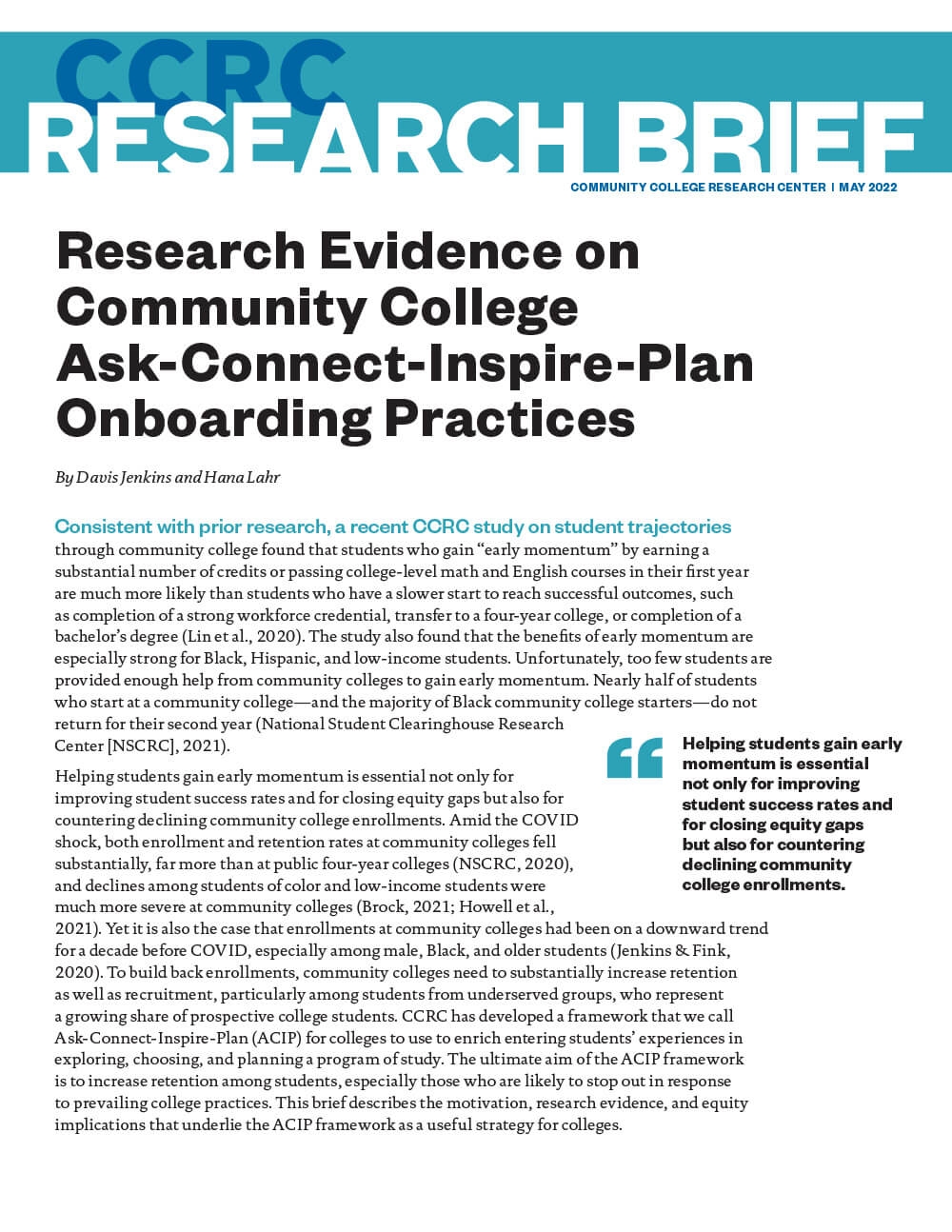
Helping students gain early momentum is essential not only for improving student success rates and for closing equity gaps but also for countering declining community college enrollments. To build back enrollments, community colleges need to substantially increase retention as well as recruitment, particularly among students from underserved groups. CCRC has developed a framework that we call Ask-Connect-Inspire-Plan (ACIP) for colleges to use to enrich entering students’ experiences in exploring, choosing, and planning a program of study. The ultimate aim of the ACIP framework is to increase retention among students, especially those who are likely to stop out in response to prevailing college practices. This brief describes the motivation, research evidence, and equity implications that underlie the ACIP framework as a useful strategy for colleges.
The process by which students explore and choose an academic and career field that is a good fit for them is ideally a developmental one in which students explore options and interests, gain confidence by taking and passing challenging program foundation courses, and establish a network with faculty, students, and others with similar interests and aspirations. CCRC’s research on efforts by colleges to redesign onboarding following the guided pathways model, together with other recent research on the experiences of community college students, suggests that colleges can help incoming students make the most out of college through the following ACIP practices:
- Ask every student about their interests, strengths, aspirations, and life circumstances with the aim of helping them explore programs of study and career paths aligned with their goals.
- Connect every student with faculty, peers, alumni, and employers in fields of interest to them and to college and community resources that can help support their needs.
- Inspire students by ensuring that they are able to take at least one well-taught, college-level course on a topic that interests them in their first term.
- Plan: Help every student develop—by the end of the first term—at least a preliminary individualized education plan that is aligned to jobs and/or transfer in a field of interest.
By ensuring that all entering students have experiences shaped by ACIP practices, colleges can unleash students’ talent and motivation in ways that will help them gain momentum on a path of learning, networking, and personal growth.
